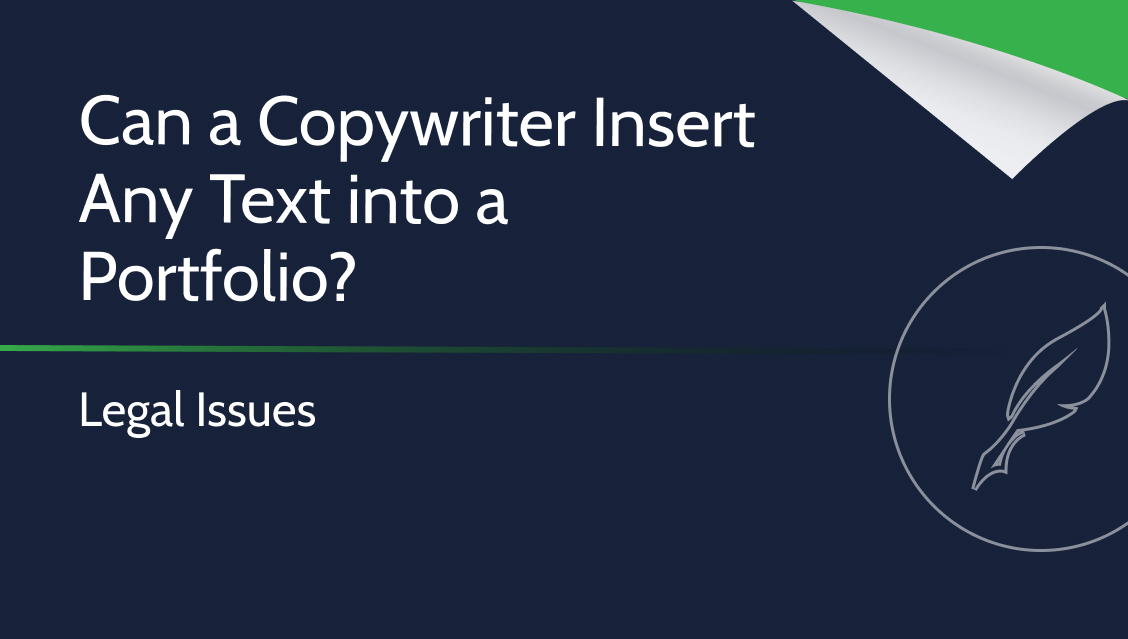Can a copywriter insert any text into a portfolio?

Legal aspects can cause a lot of turmoil in copywriting. No wonder, because the profession is developing dynamically, and with it creates new strategies among writers to outperform the competition. One of them is a portfolio, which is not always built legally. Find out what to pay attention to safely implement them!
How to properly build a portfolio?
In practice, most often a copywriter’s portfolio contains examples of texts from various industries or individual types (back-up texts, product descriptions, blog articles, etc.). No writer has any doubts that such a collection of developed materials is a good marketing move – potential clients can easily check the competences, which will increase interest in the offer, and usually eliminate the need to write additional “test texts”.
However, the question arises which texts can be included in the portfolio. Is it only your own, created especially for this purpose, or content ordered by the client, for which he paid? The answer can be found in the Copyright Act, as well as … in the arrangements between the parties!
Copyright and portfolio
The copywriter is entitled to economic and personal copyrights to the created texts.
The first of them are subject to sale – thanks to this, the client can use the content for commercial purposes. The latter, on the other hand, are inalienable and prove that authorship cannot be removed. This means that the copywriter is the undeniable creator of all his content and no one has the right to take away this title from him.
So it’s clear that he can always sign his lyrics, right? Well, not entirely. Customers may reserve such a possibility without invoking the loss of moral rights. The relevant clause in the contract plays a decisive role.
If the client does not wish his texts to be included in the portfolio, before establishing cooperation, he draws up a contract in which the copywriter undertakes not to exercise moral rights.
This means that he does not lose his rights, but only declares that he will not use them (e.g. to build a portfolio). This solution cleverly circumvents the issue of inalienability and clearly illustrates how the terms of cooperation can be dictated by market needs.
See also
Summary
- Can a copywriter insert every client’s text into a portfolio? Unfortunately not.
- To avoid misunderstandings, the issue of exercising moral rights should be mutually agreed.
- The rules should be clearly defined in the contract signed before the start of cooperation.
- Thanks to this, unnecessary conflicts and differences will be avoided, and the implementation of texts will be based on transparent conditions.
















Leave a Reply